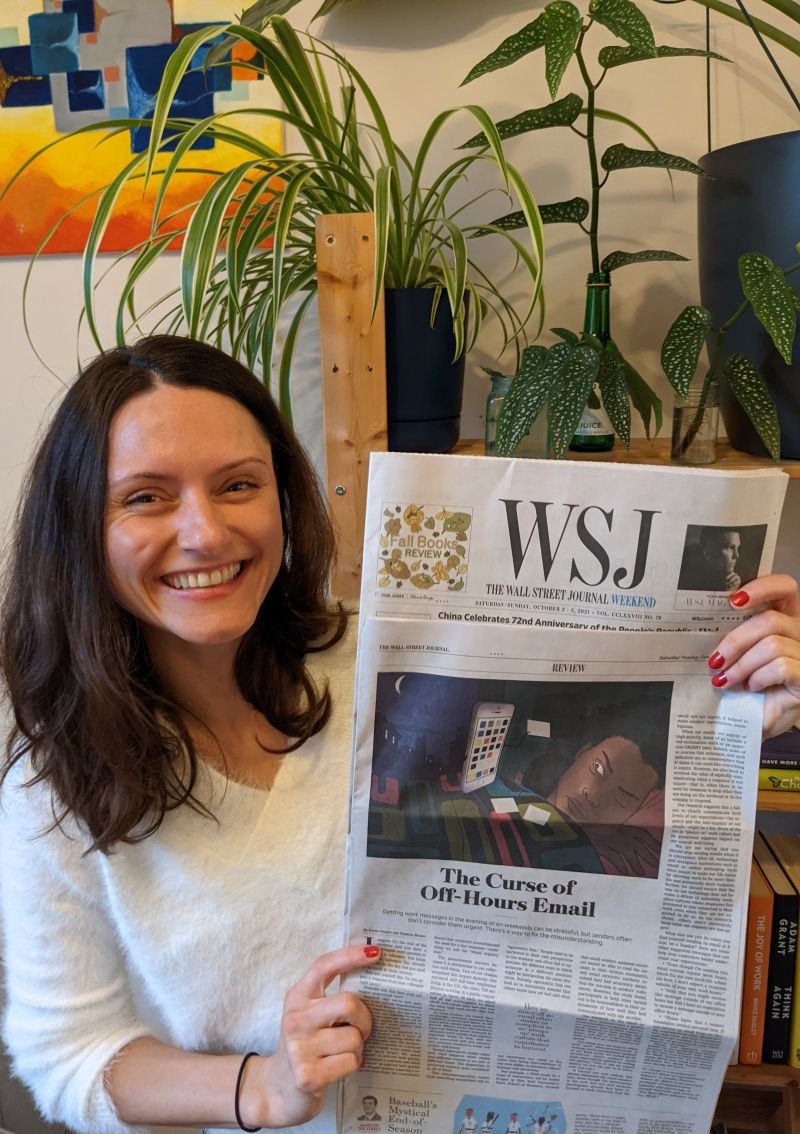The Wellbeing Lab: Early Studies
MoreThanNow has recently launched a new Wellbeing Lab to conduct research on how to scientifically improve wellbeing at work. We’re launching now in response to increasing recognition that organisations must improve wellbeing at work, support employees’ mental health, reduce burnout and lessen stress. And we’re building on previous research conducted by our academic partners and MoreThanNow’s earlier work in this area. As such, we wanted to share three mini-case studies to give a flavour of the type of research we want to conduct through the Wellbeing Lab.
CASE STUDY 1: Reprioritising workloads through the Reset at Nationwide
At the end of the first UK lockdown in 2020, we worked with Nationwide to support leaders to work with their team members to reprioritise workloads, unlock focused work time and reset the relationships between leaders and employees. We used a Randomised Control Trial (RCT) to randomly allocate 50 teams, and 300 associated employees, into a control group (who received nothing) and a treatment group (who were asked to participate in the Reset).
We asked leaders to do three things:
Hold a Reset Session: one hour for the team and their leader to reconsider priorities and re-distribute work accordingly.
Block focus time: pre-block time within Microsoft Outlook to focus on those priorities over a six-week period.
Check-in: pre-book 30mins on a Friday or Monday to evaluate last week’s progress and plan for the following week.
We found that teams who participated in the Reset were more likely to report increased work progress, achievement of goals, and productivity over the period of the experiment. Interestingly, teams who took part in The Reset spent less time working outside their core working hours in comparison to our control group. And the number of emails sent reduced as a proportion of employees’ overall collaboration time, which suggests a move towards higher-quality interactions, plausibly contributing to improved wellbeing.
case study 2: Addressing email urgency bias
Drs Laura Giurge and Vanessa Bohns coined the term ‘email urgency bias’ to describe the phenomenon whereby receivers of email believe the sender expects a response sooner than the sender does. This bias can lead to stress on the part of the person receiving emails, that the sender does not intend nor anticipate. In a series of studies, they found that email urgency bias could be alleviated by simply telling recipients:
“This is not an urgent matter so you can get to it whenever you can.”
Their research has been covered by the Wall Street Journal, Forbes and Harvard Business Review. We’re now rolling out this research inside a global technology company to see how we can reduce email-related stress at work.
cASE STUDY 3: Understanding leaders experiences with their own wellbeing, and the wellbeing of their teams
MoreThanNow has recently been working with a global beverages company to understand how leaders think about their own wellbeing and their teams’ wellbeing. We asked the top tiers of leaders about how they experience stress, anxiety and sleeplessness as a result of work. We found that middle management level leaders consistently reported more wellbeing challenges than senior leaders in the organisation.
More specifically, These leaders were more likely than senior leaders to report:
losing sleep due to work pressure and stress;
finding it challenging to focus on important work tasks over urgent work tasks; and
struggling to balance their wellbeing with the demands of work.
The wellbeing lab at morethannow
We are now looking for ambitious organisations to collaborate with us to generate further evidence on how to improve wellbeing at work. We are thrilled to be working in collaboration with the World Wellbeing Movement and leading researchers in this space - Jan-Emmanuel De Neve at the University of Oxford, and Christian Krekel and Laura Giurge, at the LSE.
We are particularly keen to hear from organisations interested in exploring:
Work-life balance
How can regular check-ins help team members hold each other accountable for how they spend their time?
How can work-life balance be encouraged to newcomers? Does it differ when onboarding is done virtually versus in-person?
The role of leaders
Do leader-led conversations about mental health and wellbeing help employees speak up about their own challenges?
How can leaders maximise the ability of employees to take, and enjoy, their time off?
Access to resources
How should leaders best communicate wellbeing programmes to encourage uptake?
How does emphasising the benefits of wellbeing programs for one’s colleagues (versus one’s self) encourage the uptake of such initiatives?
Learn more about the Wellbeing Lab and our academic collaborators. And get in touch if you’re interested in discussing more with a member of our team.



